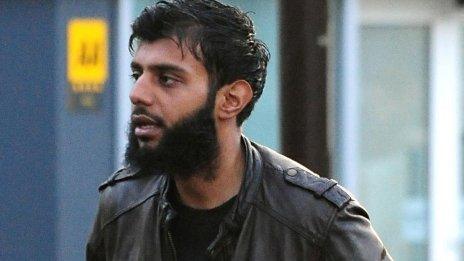Briton Kabir Ahmed 'among Iraq suicide bombing dead'
- Published
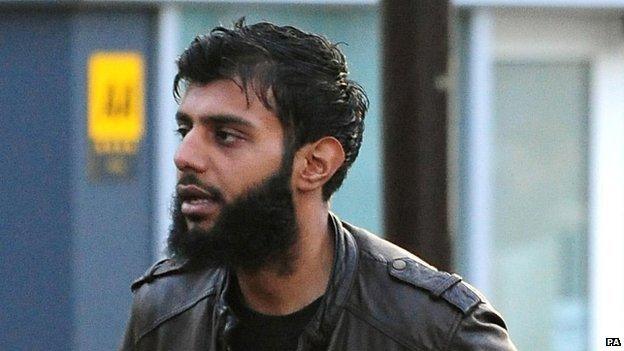
Kabir Ahmed, who has been named in reports as having died in Iraq
British man Kabir Ahmed is reported to have died while carrying out a suicide bombing in Iraq.
The Foreign Office has said it was "aware of reports of the death of a British national in Iraq".
There has been no confirmation of the death of Ahmed, also known as Abu Sammyh Al Brittani, who is from Derby.
Islamic State (IS) militants named him as being among the bombers who killed a senior Iraqi police official in Baiji, north of Baghdad.
The attack took place on Friday when a truck packed with explosives was driven into the convoy of Lt Gen Faisal Malik Zamel, who was inspecting forces in the town.
He was killed along with seven other police officers. Fifteen people were wounded.
'Much narrower'
Shiraz Maher, from the International Centre for the Study of Radicalisation at King's College in London, which monitors social media accounts of alleged jihadists, said Ahmed was a 32-year-old father of two.
He wrote on Twitter, external: "British suicide bomber in Iraq, Abu Sumayyah (Kabir Ahmed) originally joined Jund al-Sham in Syria and then moved to Islamic State."
Earlier this year Ahmed told the BBC's Panorama programme that he was on a "waiting list" to be a suicide bomber, adding: "Everybody's got their name on the list... everybody wants to fight."
He had been jailed in the UK, alongside two others, in 2012 after being found guilty of stirring up hatred on the grounds of sexual orientation.
Kabir Ahmed started "showing less tolerance of others" at university, describes his relative Fareed Hussain
He had handed out a leaflet calling for homosexuals to be executed, saying he was doing his "duty as a Muslim".
Fareed Hussein, a cousin of Mr Ahmed's mother, said he was a "likeable person" while at school but his world view became "much narrower" while at university.
"People began to expect he had been taken in by extremist ideology," he said. "There was a general concern about the direction in which he was heading but nobody thought he would go as far as he seems to have gone."
Mr Hussein, a former mayor of Derby, said he held a couple of meetings with Mr Ahmed but it was "difficult to anticipate he would become a suicide bomber".
"It is difficult to divert a person once they get on a track of this nature," he added.
"They so staunchly believe in the views they hold, that they are right 100% and everyone else is wrong. It's difficult to have rational conversations."
'Million-pound question'
Friends of Ahmed in Derby said he was "easily led" and may have been "brainwashed" into joining militants.
Aleem Sheid, 33, who knew Ahmed, said: "Nobody's born bad, it's people around you that make you behave bad [sic] and push you down a certain way.
"The million-pound question is where did he get radicalised? I don't know - it's the people who were around him."
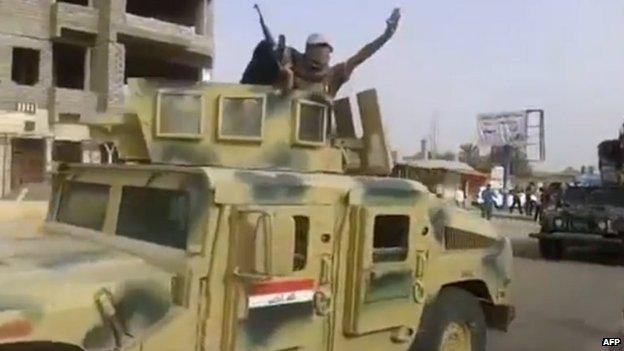
IS-led militants overran the town of Baiji in June, seizing abandoned military vehicles
Another resident, who declined to identify himself, said: "I can honestly say, no disrespect, that he was not the brightest of lads.
"He was a follower, not a leader. You could ask him to do something and he would do it, he was that sort of guy.
"What I read that he had said about foreign policy, I just thought that must have been a script because he couldn't speak like that."
If Ahmed's death is confirmed, he would be the second British jihadist suicide bomber.
Abdul Waheed Majeed, a father-of-three from Crawley in West Sussex, died in February when he drove a truck bomb at the gates of Aleppo prison in Syria.
Air attacks
Britain is strengthening its military role in Iraq to help local forces trying to halt the advance of IS.
The United States is sending 1,500 more non-combat troops to Iraq to boost local forces fighting IS.
British military trainers will be sent within weeks to work at a US headquarters in Baghdad.
Large swathes of Syria and Iraq are currently under the control of IS.
The UK has been carrying out air attacks against IS targets in Iraq since 30 September - four days after Parliament approved military action.
- Published8 November 2014
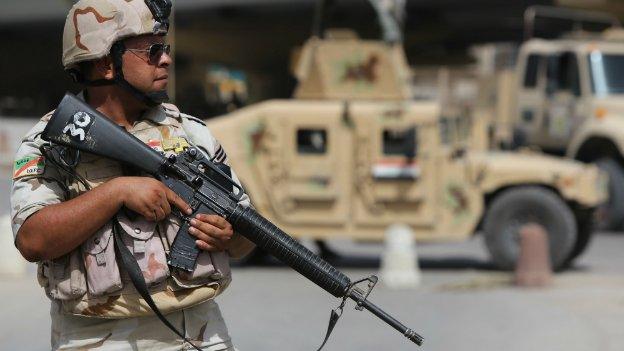
- Published5 November 2014
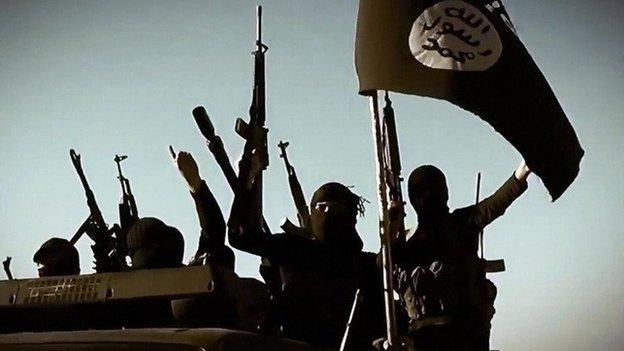
- Published11 February 2014
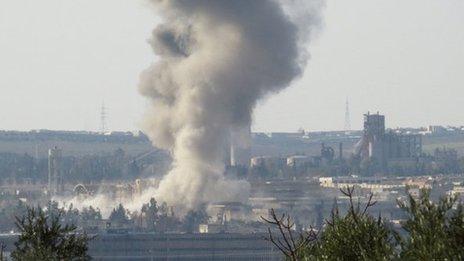
- Published16 January 2012
